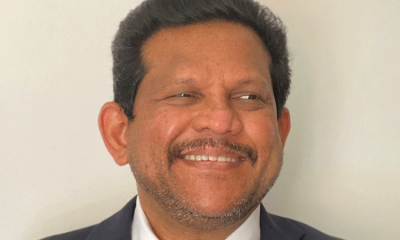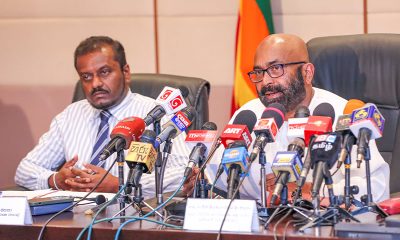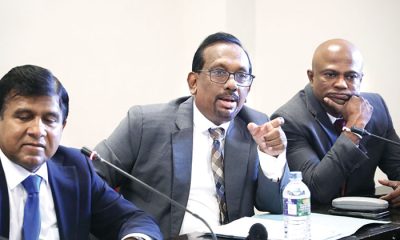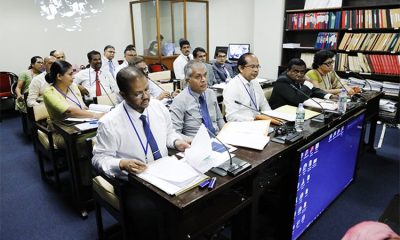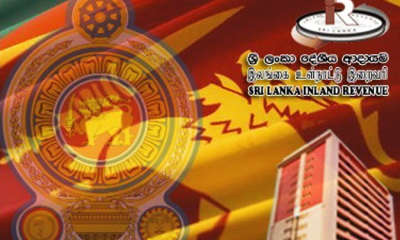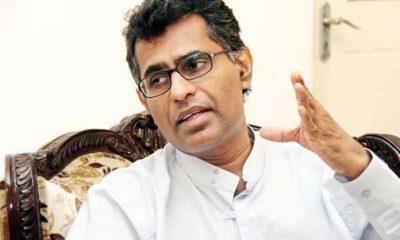News
JAAF opposes govt. move to abolish SVATs
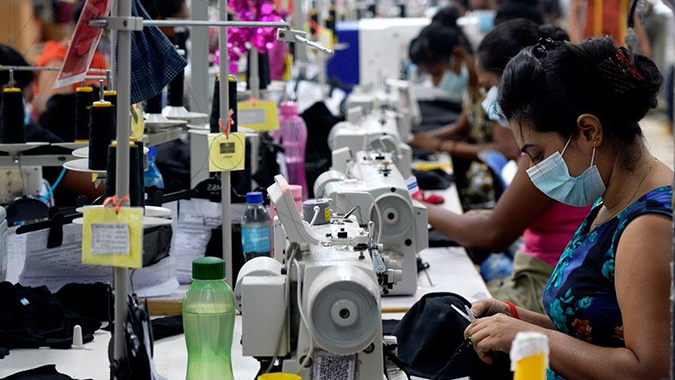
questions timing, given current decline in exports
urges govt. to shield sector from unnecessary internal shocks
The Joint Apparel Association Forum (JAAF) has expressed its deep concerns and disappointment regarding a recent government decision to end the well-functioning Simplified Value Added Tax (SVAT) scheme.
Cabinet spokesman Minister Bandula Gunawardena last week disclosed that the Cabinet-of-Ministers approved a proposal by President Ranil Wickremesinghe, in his capacity as the Finance Minister, to draft a Bill to do away with SVAT, with effect from Jan 01, 2024. The Minister is on record as having told the post-Cabinet media briefing that this was done in line with the agreement with the International Monetary Fund (IMF)
JAAF has issued the following statement: “JAAF, representing the interests of the apparel industry, firmly believes that the abolition of SVAT for exporters will have detrimental effects on the sector, already reeling under the pressure of declining exports, jeopardizing the cash flows of businesses and impeding the efforts to return to overall growth.
The abolition of SVAT will create a further burden on an already stressed industry and, particularly, on company cash flows, as funds will be tied up in even the most efficient refund systems, JAAF stated, adding that the impulsive and non-consultative decision will have disastrous impacts on the long-term operations of a viable sector.
Whilst recognising the need for the Government to achieve its revenue targets. JAAF notes that the abolishing of SVAT is completely revenue neutral to the Department. Removal of SVAT will only lead to increased cash flow between the Exporter and the IRD. Sri Lanka’s track record on VAT refunds is poor and prior to the introduction of SVAT, exporters had refunds due from the Department that ran into over 18 months.
It is important to note that as history has shown, the refund system that existed before the introduction of SVAT had large fraud in the non-export sector, and not among exporting companies. Exporters utilize SVAT for the purchase of local inputs, which are subsequently converted into finished products for export. As such they have very little sales locally which reduces the potential for abuse of the system. In any event the likelihood of abuse is much higher in a system based on payment and refund as against a voucher system of SVAT.
Further, the decision has seemingly failed to consider the fact that apparel exporters may be compelled to import raw materials rather than purchasing them from domestic manufacturers and having their cash flows restricted by the VAT refund system. This will lead to increased imports, a detrimental effect on both the companies and the overall balance of trade. This will result in the loss of the unique vertical integration benefits Sri Lanka apparel has to offer, which over the long term may lead to questions being raised over the viability of companies and the jobs they create
Furthermore, the reintroduction of a VAT refund system, even under the most auspicious conditions, would necessitate the allocation of substantial Inland Revenue Department (IRD) resources for the constant follow-up and evaluation which a refund system will necessitate. This will only result in increased additional administrative costs for all parties and the misplacement of precious IRD resources and distracted staff.
Therefore, JAAF firmly recommends that the removal of SVAT from the export sector be approached with utmost caution. In the current climate of declining exports and its adverse effects on companies and employees, it is crucial to shield the sector from unnecessary internal shocks that would undoubtedly occur if SVAT were abolished, urging the Government to preserve SVAT for the export sector.”
Latest News
Advisory for severe lightning for the Western and Sabaragamuwa provinces and Galle and Matara districts
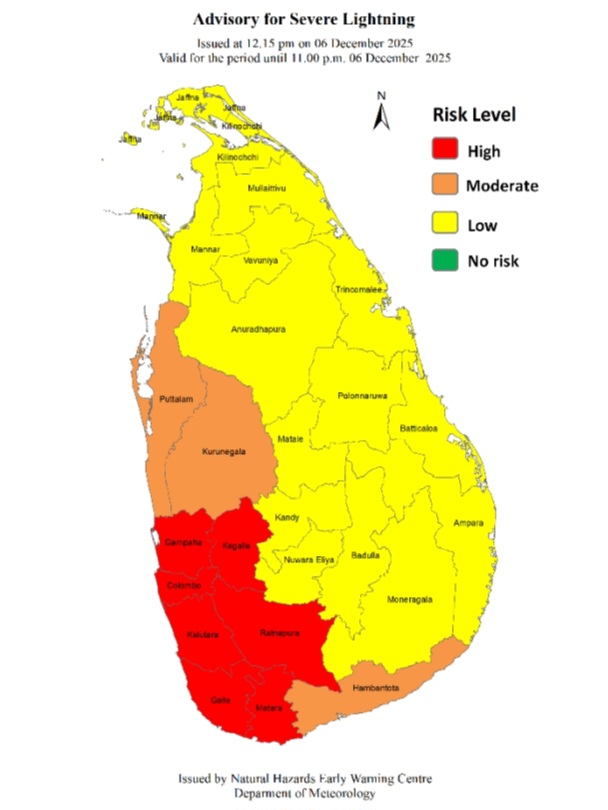
Advisory for Severe Lightning Issued by the Natural Hazards Early Warning Centre at 12.15 p.m. 06 December 2025 valid for the period until 11.00 p.m. 06 December 2025.
The public are being cautioned that thundershowers accompanied with severe lightning are likely to occur at some places in the Western and Sabaragamuwa provinces and in Galle and Matara districts.
There may be temporary localized strong winds during thundershowers.
The General public is kindly requested to take adequate precautions to minimize damages caused by lightning activity.
ACTION REQUIRED:
The Department of Meteorology advises that people should:
Seek shelter, preferably indoors and never under trees.
Avoid open areas such as paddy fields, tea plantations and open water bodies during thunderstorms.
Avoid using wired telephones and connected electric appliances during thunderstorms.
Avoid using open vehicles, such as bicycles, tractors and boats etc.
Beware of fallen trees and power lines.
For emergency assistance contact the local disaster management authorities.
News
Government briefs Diplomatic Community on recovery progress

A special briefing for the diplomatic community in Sri Lanka was held on 4 December at the Ministry of Foreign Affairs, Foreign Employment and Tourism, chaired by Prime Minister Dr. Harini Amarasuriya together with the Minister of Foreign Affairs, Foreign Employment and Tourism, Vijitha Herath. Senior government officials, including representatives of the Disaster Management Centre (DMC) and the Sri Lanka Tourism Development Authority (SLTDA), also participated.
Opening the session, Prime Minister Dr. Harini Amarasuriya expressed her gratitude to the diplomatic community for their immediate support and solidarity following the recent floods and landslides. She noted that Sri Lanka had endured one of the most severe disasters in recent years, but the resilience of the people and the coordinated efforts of government agencies had enabled a rapid response and significant progress in relief operations. She confirmed that not a single tourist has been reported harmed during the disaster and noted that the previously inaccessible areas are now reachable. Massive cleanup and decontamination operations are underway to ensure that lands and public spaces are safe for return, and communications have been restored in the affected areas.
The Prime Minister emphasized that relief, evacuation, and emergency assistance were carried out with the collective effort of the tri-forces, police, public officers, health workers, volunteers, and local authorities. She acknowledged the continuing challenges, including the restoration of infrastructure, resettlement needs, and long-term disaster-mitigation work, and welcomed the technical, humanitarian, and financial support offered by partner countries.
Maj. Gen. Sampath Kotuwegoda (Retd), Director General of the Disaster Management Centre, delivered a detailed presentation on the current status of the disaster, including the number of affected families, evacuation centres, damage assessments, and the ongoing coordination with international agencies for recovery planning. The cyclone affected almost the entire country, with 22 districts severely impacted. Some locations recorded up to 540 mm of rainfall and winds of up to 70 km/h, causing widespread infrastructure damage. Early assessments indicate that 2.3 million people were exposed to flooding, with 1.8 million people directly affected on the ground and 1.1 million hectares of land impacted. The assessment also identified 40,152 pregnant women among those affected, who have been prioritized for support. He also highlighted areas where further technical cooperation, such as early-warning systems, mapping capabilities, and climate-response technologies would be valuable.
Buddhika Hewawasam, Chairman of the Sri Lanka Tourism Development Authority, briefed the diplomatic community on the impact of the disaster on the tourism sector. He reassured attendees that major tourism zones remain operational, safety assessments are underway, and contingency measures have been activated to support visitors and protect the industry during the upcoming peak season. The Chairman of the Hotel Association of Sri Lanka Ashoka Hettigoda confirmed that the Coastal and resort hotels from Maravila to Passikudah are operating, with many reporting 60–65 percent occupancy; the hotels in Nuwara Eliya are partially operational. He made an appeal that the best assistance that the international community can give to Sri Lanka is the continued support provided through tourism.
Several diplomats conveyed their condolences to affected communities and reaffirmed their governments’ readiness to assist Sri Lanka in both immediate relief efforts and long-term rebuilding. They expressed appreciation for the government’s transparent engagement and the coordinated approach to managing the crisis.
Prime Minister thanked the diplomats for their continued cooperation and underscored the government’s commitment to ensuring an effective and inclusive recovery. She stressed that strengthening disaster preparedness, climate resilience, and institutional capacity will be central to Sri Lanka’s national development agenda moving forward. Deputy Minister of Foreign Affairs, Foreign Employment and Tourism, Arun Hemachandra, Secretary to the Prime Minister, Pradeep Saputhanthri, and Secretary to the Ministry of Foreign Affairs, Ms. Aruni Ranaraja, also attended the meeting.

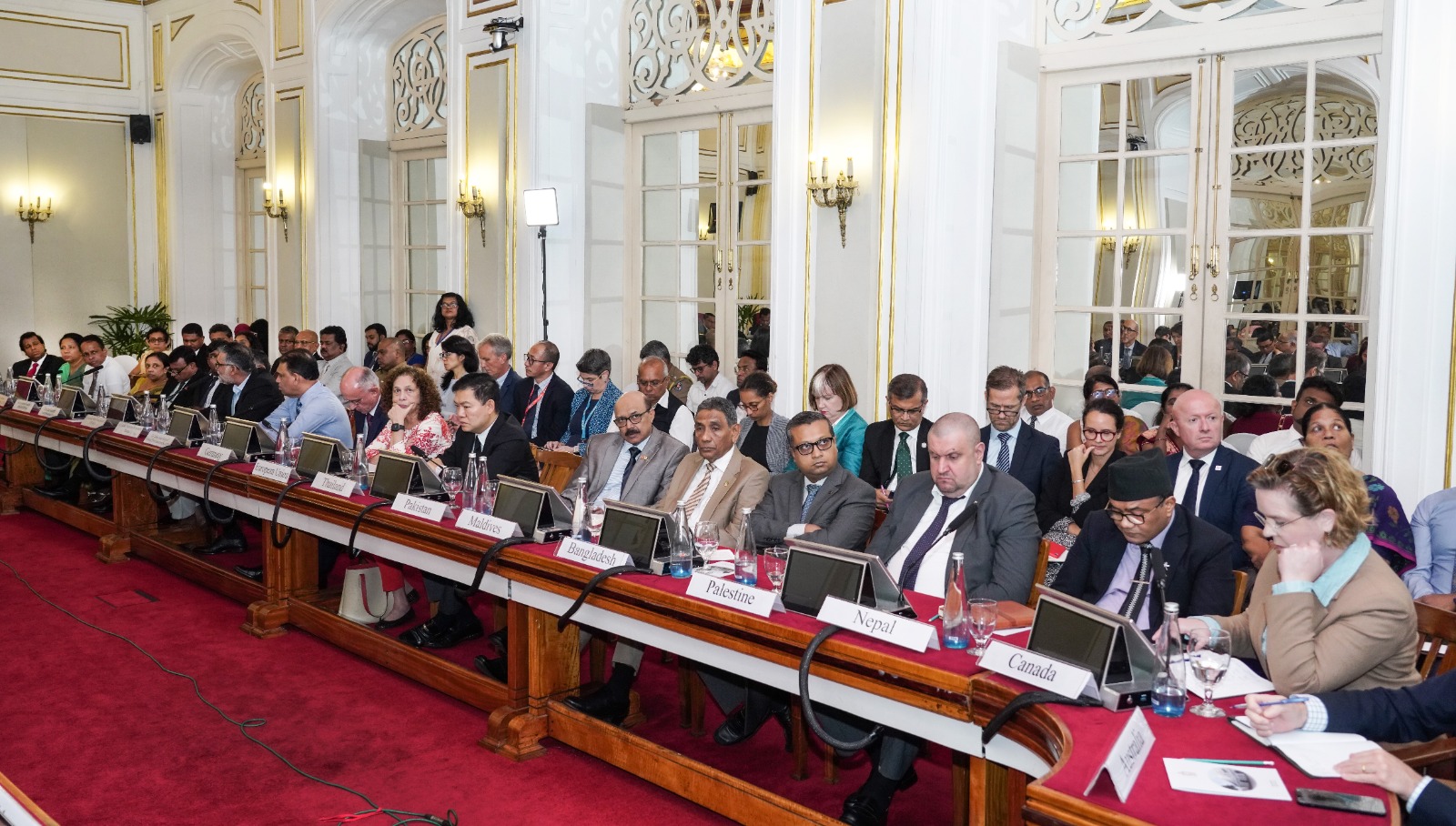
[Prime Minister’s Media Division]
News
All parties have agreed to recruit Development Officers into the teaching service through a competitive examination – PM

Addressing Parliament on Friday (05), the Prime Minister stated that, in accordance with the Supreme Court decision, the recommendations issued by the Public Service Commission, and the Sri Lanka Teachers’ Service Minute, all parties have agreed to recruit teachers through a competitive examination. The Prime Minister further noted that during the second phase of the recruitment process, the Development Officers currently serving in schools will be given preference during the interviews.
Addressing further, the Prime Minister stated,
“In compliance with the final order of the Supreme Court and the provisions of the Sri Lanka Teachers’ Service Minute, the Development Officers will be given the opportunity to join the Sri Lanka Teachers’ Service.
It has been decided to revise the maximum age limit of 40 years, as specified in the examination notification for applicants, to 45 years for this instance only”.
The Prime Minister further stated that, in accordance with the Supreme Court decision, arrangements have been taken to revise the age limits for graduates employed in the public service and graduates not employed in the public service, and to conduct separate examinations accordingly, in order to recruit teachers to Grade 3. i (a) of the Teachers’ Service to fill the available vacancies.
[Prime Minister’s Media Division]
-
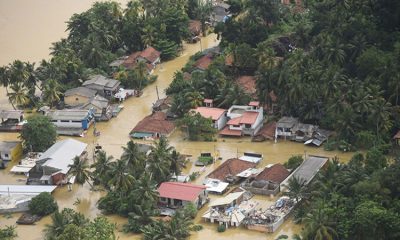
 News7 days ago
News7 days agoWeather disasters: Sri Lanka flooded by policy blunders, weak enforcement and environmental crime – Climate Expert
-
News4 days ago
Lunuwila tragedy not caused by those videoing Bell 212: SLAF
-

 News3 days ago
News3 days agoLevel III landslide early warning continue to be in force in the districts of Kandy, Kegalle, Kurunegala and Matale
-

 Latest News5 days ago
Latest News5 days agoLevel III landslide early warnings issued to the districts of Badulla, Kandy, Kegalle, Kurunegala, Matale and Nuwara-Eliya
-
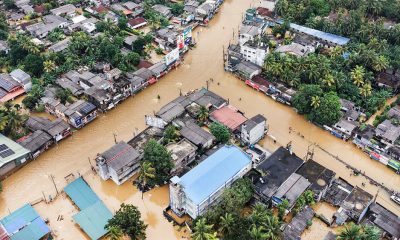
 Features5 days ago
Features5 days agoDitwah: An unusual cyclone
-

 Latest News6 days ago
Latest News6 days agoUpdated Payment Instructions for Disaster Relief Contributions
-

 Latest News6 days ago
Latest News6 days agoLandslide Early Warnings issued to the Districts of Badulla, Colombo, Gampaha, Kalutara, Kandy, Kegalle, Kurunegala, Matale, Moneragala, Nuwara Eliya and Ratnapura
-

 News16 hours ago
News16 hours agoA 6th Year Accolade: The Eternal Opulence of My Fair Lady


